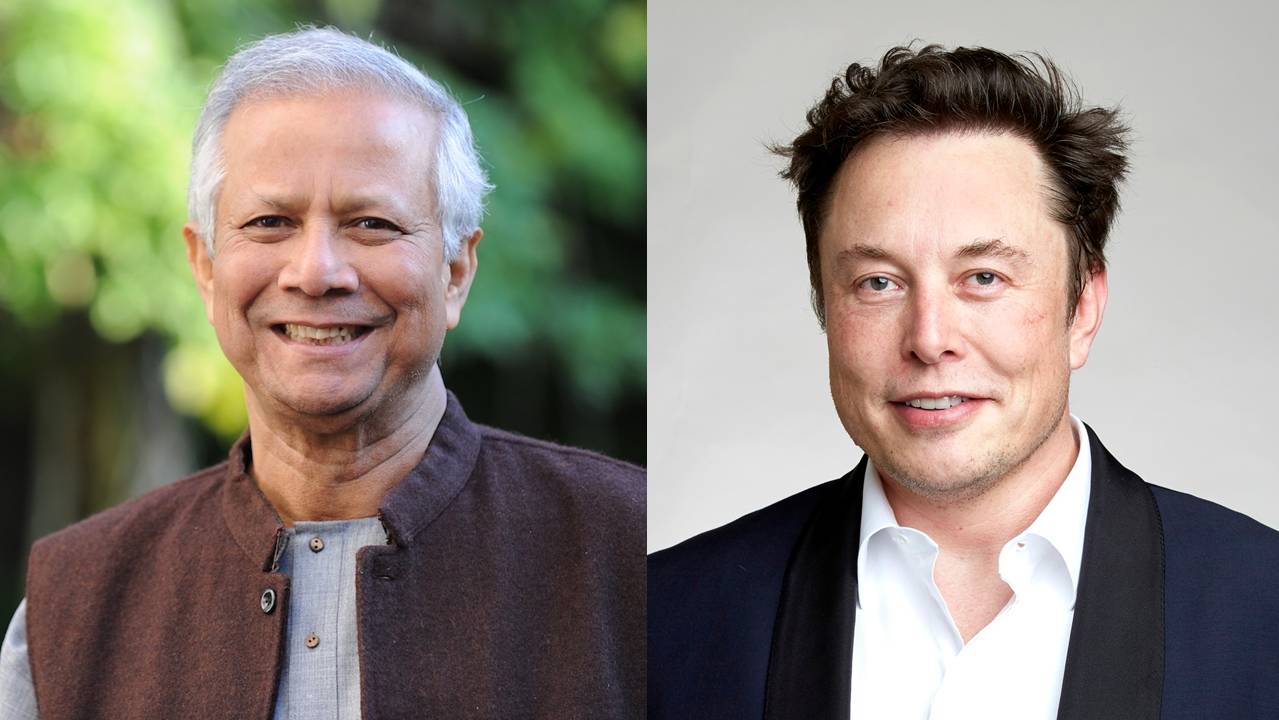SpaceX hails govt move to cut red tape

The interim government's push to promptly bring Starlink satellite internet to Bangladesh signals its commitment to eliminate bureaucratic hurdles and create a business-friendly environment, said a top official of SpaceX, the parent company of Elon Musk's satellite venture.
Referring to the Chief Adviser Prof Yunus' February 19 letter asking for SpaceX connectivity in 90 work days, Richard H Griffiths, a senior adviser at SpaceX, said, "It was a very good sign and a great signal of how this interim government is responding to business."
In an interview with The Daily Star, he said Prof Yunus made a very focused effort during a phone call to highlight the need for Starlink in Bangladesh.
"The fact that he will do everything to support the licensing of Starlink and has actually formed a team is a sign that he wanted to move quickly and the estimate is that they're looking to have it within 90 days in Bangladesh, which is extraordinarily fast," he said.
But the reality is, it may take a little longer. However, from start to finish of the process, Bangladesh may be the fastest country in the world, he said.
Numerous issues had previously hindered US businesses from entering Bangladesh. Thankfully, the landscape is changing, and many are now exploring opportunities in the country.
"I really believe that Bangladesh is a country that was not on the radar of the Americans and European [companies]. The new government coming in is very significant. He [Yunus] is a well-known international figure, well-known economist, very famous for all the work he's done around the world, including in the US. And of course, we know Grameen US is a big entity."
He said another multi-billion dollar US firm would be coming to Bangladesh following Starlink.
"And you know, I have to tell you, Professor Yunus will see all of them. So he's not someone where there are layers of people between him and the government. He will see and support that…. The US relationship with Bangladesh is going to expand."
About Starlink's business model in Bangladesh, pricing strategy, the number of ground stations and gateways, and whether it would partner with mobile operators as it did in India, he said that other members of the Starlink team were handling these aspects and his role focused solely on high-level engagements.
"I think the first part is always that Starlink needs to work directly with the government to get the spectrum and get the licensing. That's the first element. Once they have that, then they'll work with a multitude of local operators and there's an ecosystem that's created from that. Again, once you're licensed in the country, you'll see many. It's a very open model, so you'll see many businesses then able to cooperate with Starlink and SpaceX."
Richard believes Bangladesh should embrace the fact that the global community and Muhammad Yunus are engaging now.
"If you look at this incredible transition of power, it highlights what really Bangladesh is about -- the acceptance of Muhammad Yunus coming in, the fact that the youth picked someone of his age -- it shows that they weren't looking to run the government themselves. There was an awareness that they didn't have the experience. So who better than bringing in Muhammad Yunus?"
"I was speaking with Muhammad Yunus last night at Iftar and he was talking about the fact that if the government goes online and is digitalised, it roots out corruption. So a young person, a young woman, a man from a village will have a computer, an Internet connection, and the ability to register births, register vehicles, to apply for grants, to do all kinds of things."
Richard said in the new Bangladesh, digitalisation of the economy is being talked about, and Starlink can help in that front.



 For all latest news, follow The Daily Star's Google News channel.
For all latest news, follow The Daily Star's Google News channel. 


Comments